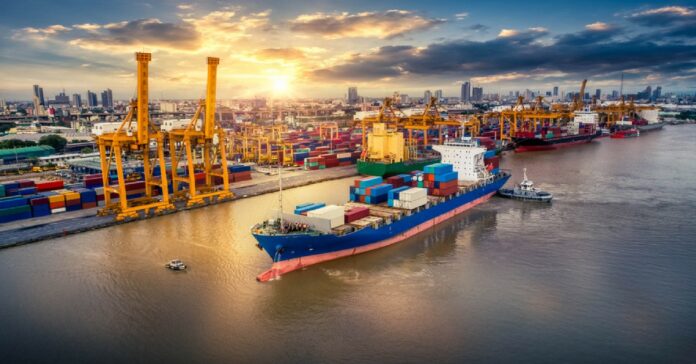Seaports have played a pivotal role in shaping the country’s economy and culture. From ancient times to the present day, these ports have served as gateways to global trade and cultural exchange that facilitate the transportation of goods worth billions of dollars each year. India, with its extensive coastline, has a rich maritime history and boasts a network of impressive seaports. From bustling commercial hubs on the mainland to historical landmarks, these ports offer a fascinating glimpse into India’s maritime heritage.
These ports stand out for their historical significance, infrastructure, and operational capacity. They blend historic legacy with modern innovation, linking India to the world. In this article, let’s explore some of the most significant seaports in India:
- Jawaharlal Nehru Port, Navi Mumbai, Maharashtra: Located in Navi Mumbai, JNPT is one of the largest container ports in India, handling 55 percent of the total container cargo passing through India. The port was established in 1989 and is ranked 28th among the world’s top container ports. It is among the first privately managed ports in India.
- Chennai Port, Tamil Nadu: Chennai Port is one of the oldest artificial ports in India, functioning since 1881. Located on the southern tip of the Indian mainland, Chennai Port ranks as the second-largest container port in India. It handles a massive 50 million tonnes of cargo every year, including automobiles, textiles, and machinery.
- Mundra Port, Kutch, Gujarat: Gujarat is the hub for business in India and for smooth imports and exports. Among them, the Mundra port is the largest privately managed seaport in India. It is well connected to the railway routes throughout India. The port handles a massive 5 million TEUs and 338 million metric tonnes of cargo.
- Visakhapatnam Port, Visakhapatnam, Andhra Pradesh: A natural harbour on the Bay of Bengal, Visakhapatnam Port is a significant port that deals with diverse cargo types, from coal to iron ore. It serves as a hub for international trade, strategically located between Chennai and Kolkata ports. It is also one of the deepest ports in India.
- Cochin Port, Kochi, Kerala: Situated on the Malabar Coast, Cochin Port is a major port for the export of spices, tea, and marine products. Established by the British in 1928 to facilitate trade from countries in the Gulf, this port is approximately 100 years old. It serves as a significant cruise port in India and experiences traffic from the Arabian Sea and Indian Ocean. The Kochi port is also the home to ICTT (International Container Transhipment Terminal), which is India’s largest container facility.
- Kandla Port, Kandla, Gujarat: Located in the Gulf of Kutch, Kandla Port is one of the largest ports in India in terms of cargo handled. The port specialises in handling cargo such as petroleum and gases, oil, chemicals, grains and textiles. It also plays a crucial role in India’s foreign trade, particularly in the import of petroleum products and the export of agricultural products.
- Mumbai Port, Mumbai, Maharashtra: Mumbai Port is one of the best-known ports, thanks to its unique history and importance. The port was established in the late 17th century by the British and it now serves as a gateway to international trade. The Mumbai port handles bulk and general cargo, including liquid chemicals, petroleum products, and general cargo, around 62.9 million metric tonnes.
- Hazira Port, Hazira, Gujarat: Located in Surat, this port is one of the most important petroleum and LNG harbours on the western coast. Considered one of the most advanced ports of India, Hazira Port handles vessels from America, Africa, Europe, and the Middle East.
- Kolkata Port: Situated on the Hooghly River, Kolkata Port is India’s only riverine port that has a historical legacy dating back to colonial times. This port, including the Haldia Dock Complex, serves as an important trade route for the eastern region of India.
- Marmagao Port, Goa, India: One of the oldest and most picturesque ports in India is the Marmagao port in Goa. It has a state-of-the-art mechanised material handling system of conveyors and a cargo capacity of 7 million metric tonnes. The Marmagao port also has specialised berths for the navy.


